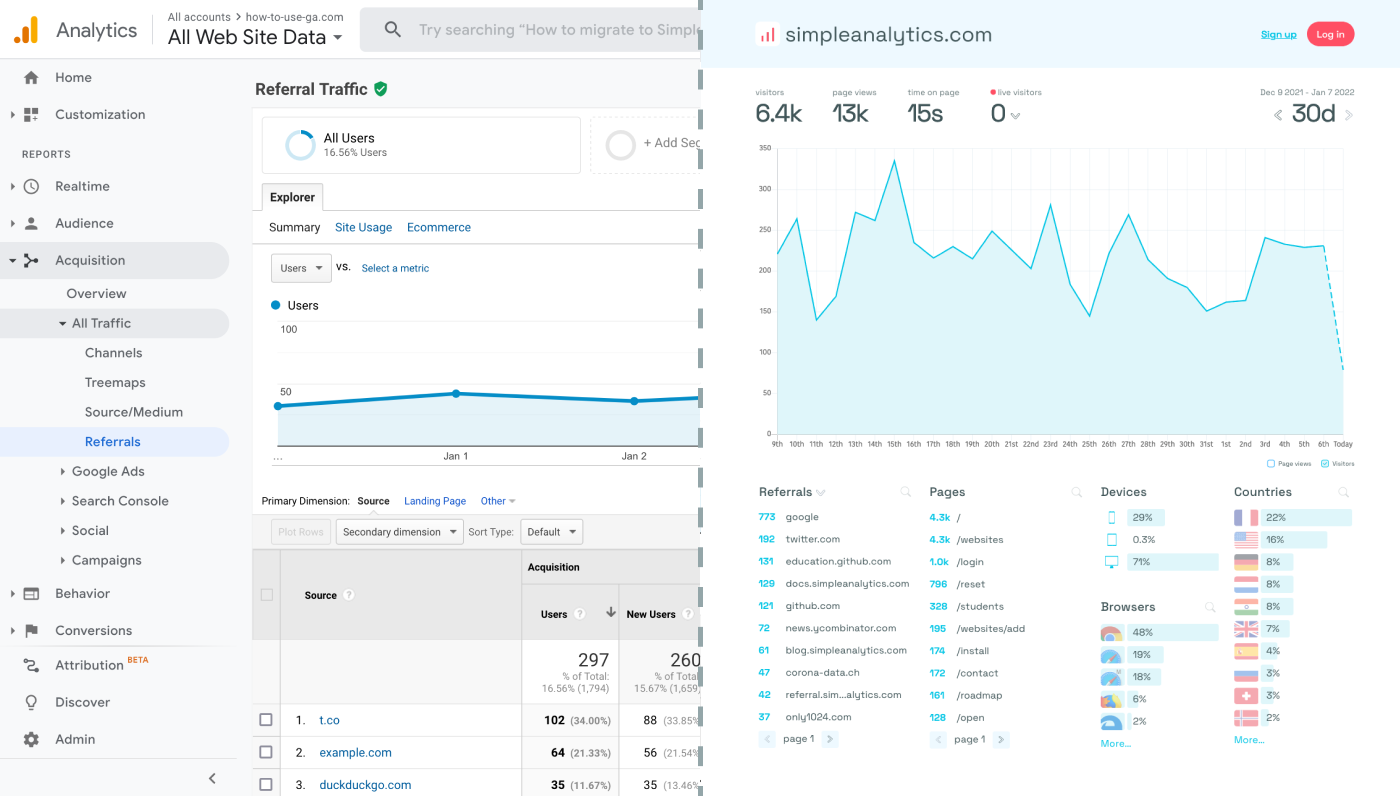Understanding how users interact with your app is key to improving their experience. Thankfully, adding Google Analytics to a Firebase project is easy. Here is how to do it step by step.
Let's dive in!
Before we dig in I want to show you something. I promise it's worth it...
Google Analytics is great, but also complex and a bit clunky. If you just want a straightforward dashboard with the insights you need, GA is not a great place to start. Additionally, Google doesn't care about privacy and GA requires an annoying cookie banner.
That's why I built Simple Analytics, a privacy-friendly and simple analytics tool - no personal data, no cookies, just the insights you need in a straightforward dashboard.
Here is how it looks vs GA. Feel free to check our live analytics to get an idea for your project. (It is free btw)
All right, enough about us. Now let's get into answering your question!

Add Google Analytics to Your Firebase Project
Integrating Google Analytics into your Firebase project is straightforward, thanks to Firebase's native support for Analytics. Here’s how to enable Analytics for your project:
- Project Settings: In your Firebase project dashboard, click on the "Settings" icon (gear-shaped) next to "Project Overview" and select "Project settings."
- Integrate Google Analytics: Navigate to the "Integrations" tab within your project settings. Find Google Analytics in the list of available integrations and click on "Link."
- Set Up Google Analytics: Follow the prompts to set up Google Analytics for your Firebase project. If you already have a Google Analytics account, you can choose an existing property to link. Otherwise, you’ll be guided to create a new Analytics property.
- Configure Your Analytics Settings: During the setup process, you’ll configure your data-sharing settings and decide whether to link your Analytics property to a Google Ads account for app promotion campaigns.
- Complete the Integration: After configuring your settings, finalize the integration by clicking on the "Link Analytics to Firebase" button. Google Analytics will now start collecting data from your Firebase app.
Add Firebase SDK to Your App
To enable Google Analytics data collection from your app, ensure the Firebase SDK is properly implemented:
- For Android and iOS Apps: Follow the Firebase documentation to add the Firebase SDK to your Android or iOS app. During the SDK setup, make sure to include the Analytics dependency to enable data collection.
- For Web Apps: If your Firebase project includes a web app, add the Firebase SDK to your web app's HTML code, following the instructions provided in the Firebase console.
Final Thoughts
Adding Google Analytics to your app can give you great insights. However, ask yourself: is Google Analytics the right tool for you?
GA is an overpowered solution for straightforward analytics. If you're looking for a simple and intuitive dashboard with the insights you need, there are better alternatives. Yes, I’m talking about my own product (Simple Analytics), but there are others out there as well.
I hated using Google Analytics for my projects. It's clunky, there are hundreds of dashboards and it doesn't look appealing. Also Google doesn't care about privacy or ethics. That's why I decided to build my own and more intuitive web analytics tool.
If this resonates with you, feel free to give Simple Analytics a spin. You just need to add the script to your app and off you go. This takes about one minute- and there is a free version as well!
Enjoy!
